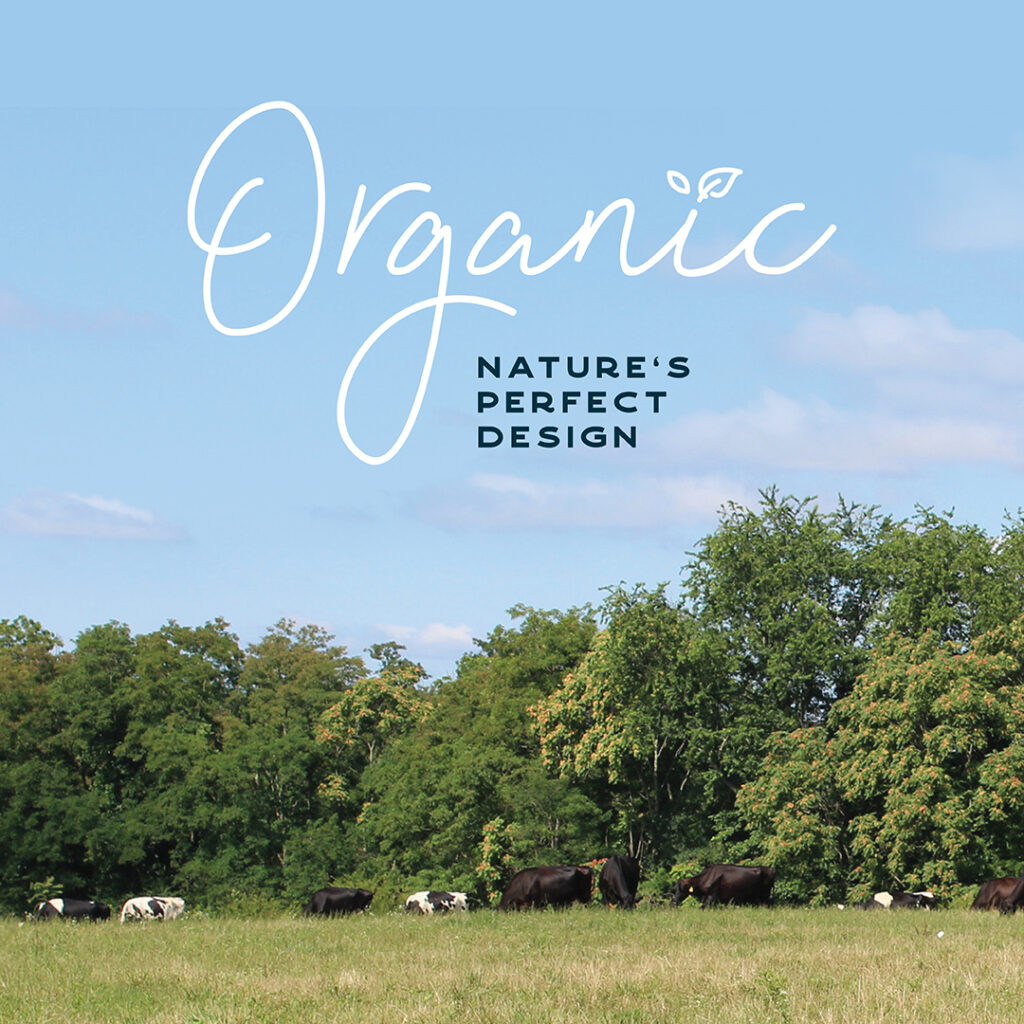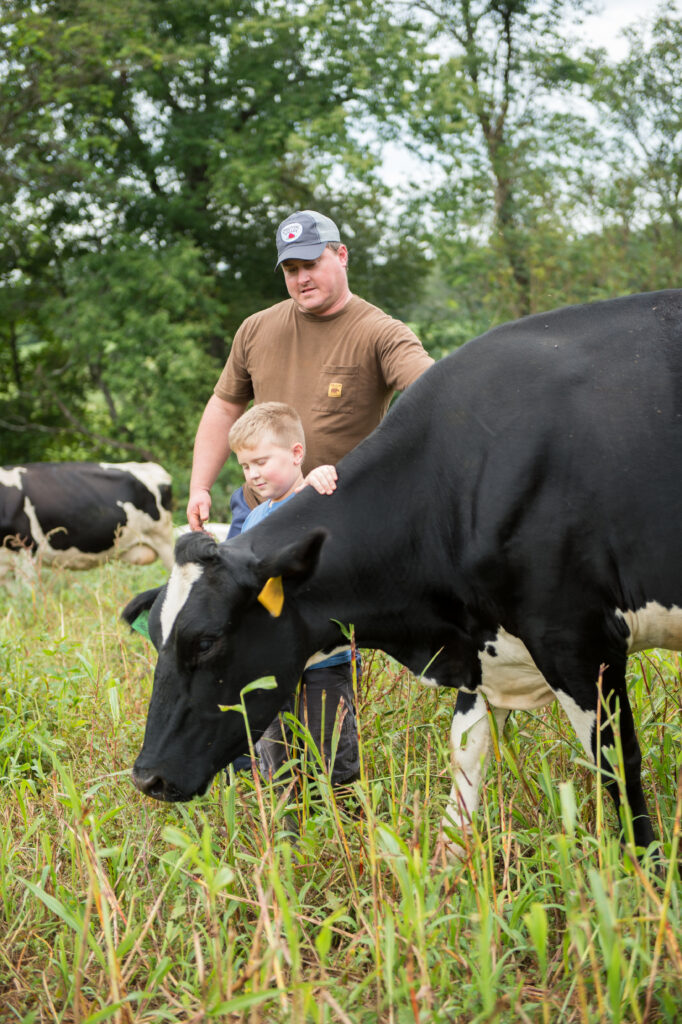After an inspiring visit to the Dobson Farm based in Statesville, North Carolina, SVP of Sustainability at Compass Group North America, Amy Keister sat down with owner and farmer, Sam Dobson, to hear about his 8th generation farm and their partnership with the Organic Valley Cooperative.

Amy: What was the pivotal moment that sparked your interest in organics?
Sam: Growing up, I had a passion for playing in the creek next to our farm and being around nature. Over time, I made friends with all of the minnows and wildlife that resided around there. Years later, I took a tour down to that creek and all of the wildlife was gone. There were algae in the streams, all those minnows and insects were no longer there. I was trying to figure out what happened, but then I realized we were the problem.
The run-off from conventional fertilizers that we were using with our traditional farming was the issue. Our fertilizer was always just a silver bullet to fix any problems, but we were never building a healthy environment and soil for our ecosystem.
The mission for our farm is to not only make a profit, but to also be sustainable in business and in environmental stewardship. I realized that we weren’t meeting that; so organics became a priority for us. From there, we found Organic Valley and made the switch.

We are happy to report now that our farm is better than ever. Our soil biology is better than ever, and our streams are filled with fish, frogs, butterflies, and things that I have never seen before.
Amy: You talk a lot about soil biology, can you explain why that is important to you?
Sam: Soil is like every living thing on this earth: it has bacteria, fungi and many components that keep the soil balanced. The crop’s nutrition comes from the roots and soil, and if you’re not feeding it correctly, the soil is not alive and the crops won’t provide any nutritious value for the livestock. We are finding there is a lot more nutritional value when using organic rather than conventional–and that is all due to the diet, proving that “you are what you eat.” It all goes back to the grazing system that we follow as organic livestock farmers.
Amy: Speaking of the livestock, have you seen any benefits for the animals since moving to organic?
Sam: Right now, the fertility and health of our cows are the best it’s ever been. When we were using conventional farming methods, ovarian cysts were frequent amongst the herd. Since following organic farming principles, it has been about four years since we have had one. Our animals are shinier, healthier and more productive for longer. The average lifespan for a cow ranges from 4 to 5 years in conventional farming, but I have a cow who is about 17 years old. We have some cows that are about 7 to 10 years old and still very productive. We are able to breed them to this day.
Amy: Where do you see the future of organics going? Will there be a day where organic is the norm?
Sam: I hope so—I don’t know if we have a choice if we want to remain on this planet long term. I feel as though nature’s design was pretty damn-near perfect when it was created. We need to get back to understanding what that original design was and work to make our food systems match it again.
Related:
Compass Group USA 2019 Corporate Social Responsibility Report // Interview With Local Farmer Cristina Cosentino of Green City Growers



Leave a Reply
You must be logged in to post a comment.